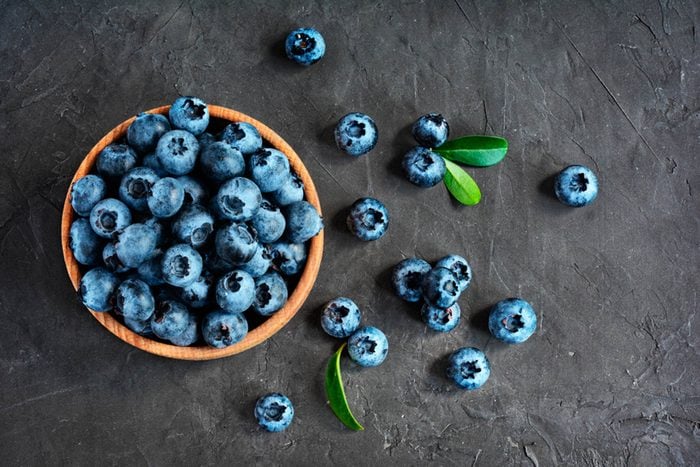
Blueberries
In a BMJ study of more than 100,000 men and women, researchers discovered that subclasses of powerful antioxidants called flavonoids—namely flavonols, flavan-3-ols, anthocyanins, and flavonoid polymers—found in select fruits and vegetables may prevent weight gain. The healthiest fruits with the greatest effect on weight maintenance were chock full of flavonoids called anthocyanins, and blueberries top this list.
About one-quarter cup of blueberries contains 10 milligrams of anthocyanins, and each 10 mg increase is linked with a quarter-pound less weight gain over four years, the BMJ study found. This may seem insignificant, but it can add up with time, the study authors point out. Exactly how flavonoids deter weight gain is not fully understood but eating foods rich in flavonoids—namely produce—may allow us to feel full sooner, and avoid other less-healthy foods that may lead to weight gain.
“I am a blueberry fan for many reasons,” says Keri Peterson, MD, an internist at Lenox Hill Hospital in New York City. Antioxidant power aside, blueberries are also rich in fiber which keeps us feeling full longer, she says. “They are among the healthiest fruits to eat.” Berries happen to be among the most-filling fruits. Aim for a cup of blueberries a day as part of an overall healthful diet that is rich in lean protein, complex carbohydrates, healthy fats like olive oil, fruits, and vegetables, she says.
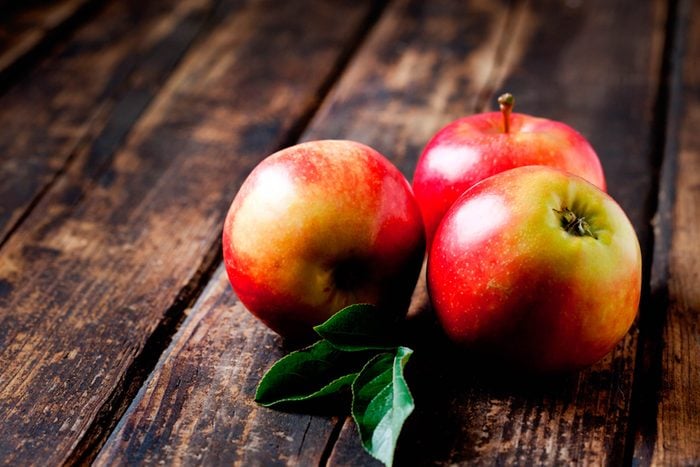
Apples
It’s great if an apple a day can keep the doctor away, but it’s an added bonus if it also helps keep you trim! Apples are rich in flavonoid polymers and are also packed with fiber, making them one of the healthiest fruits for weight loss. One medium-sized apple is considered one serving. Eat them with the skin on (i.e. unpeeled) to get more fiber, antioxidants, and better control over your blood sugar, says Sharad Paul, MD, the Auckland, New Zealand-based author of The Genetics of Health: Understand Your Genes for Better Health. Preventing blood sugar spikes and valleys will help banish food cravings and eating binges, not to mention help protect against diabetes.
7 of the Best Ways to Eat Apples for Ridiculous Health Benefits
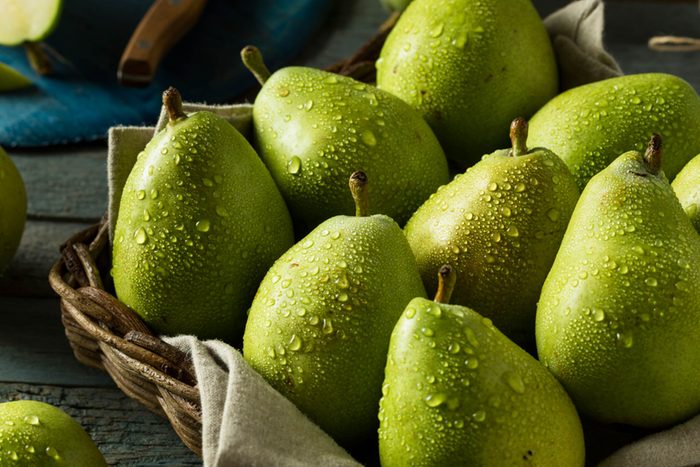
Pears
Pears may also prevent weight gain, according to the BMJ study, and this is largely due to flavonoid polymers: Every extra 138 mg of flavonoid polymers resulted in less weight gain over the four-year study period. “Fruits that are rich in flavonoid antioxidants and high in fiber are great choices,” Dr. Peterson says. “Fiber fills you up and creates satiety, so pears and apples give you a lot of bang for your buck.” Make sure to eat the skin too for maximum benefits, adds Dr. Paul.
10 Things That Happen to Your Body When You Start Eating More Fiber
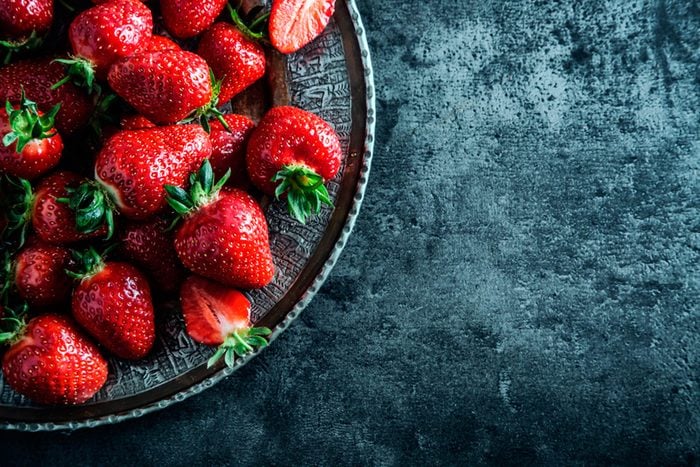
Strawberries
Strawberries help maintain weight for the same reason as blueberries: They’re rich in anthocyanins. Start incorporating one cup of strawberries a day into your diet by trying them with breakfast over low-fat yogurt or steel-cut oatmeal, as a mid-afternoon snack, or as a dessert after dinner, Peterson says. “The concern has been that eating sweet fruits may cause weight gain due to fructose content. However, certain fruits like green apples, pears and berries like raspberries, strawberries and blueberries are among the best fruits to eat as part of a weight management plan not only because they are less sweet, but due to their high flavonoid content.”
Should You Eat Strawberries? Their Nutrition Facts, Benefits, and More
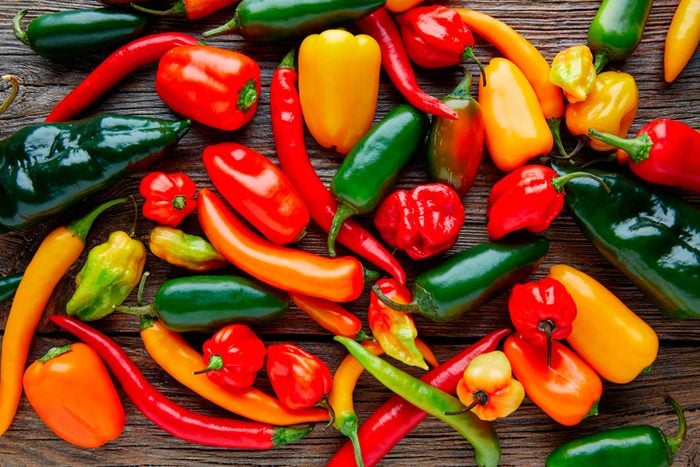
Peppers
First, yes: Peppers are in fact a fruit. Ranking up there with the healthiest fruits, they can also help put the brakes on weight gain when eaten daily, according to the research. In fact, peppers may even encourage weight loss. Capsaicin, the component that gives chili peppers that kick, seems to encourage white fat cells to convert into energy-burning brown fat, in one study done on rats.
For more wellness updates, follow The Healthy on Facebook, Instagram, and Twitter. Keep reading:
- What Are the Heart-Healthiest Foods? A Cardiologist Just Opened Her Fridge to Reveal Them
- Here’s Who Is at Greatest Risk for Developing Cancer from Drinking Alcohol
- Eating This Nut Will Help Your Gut and Reduce Inflammation, New Study Says
- Here’s What to Eat for Period Cravings, Say Women’s Nutrition Specialists


